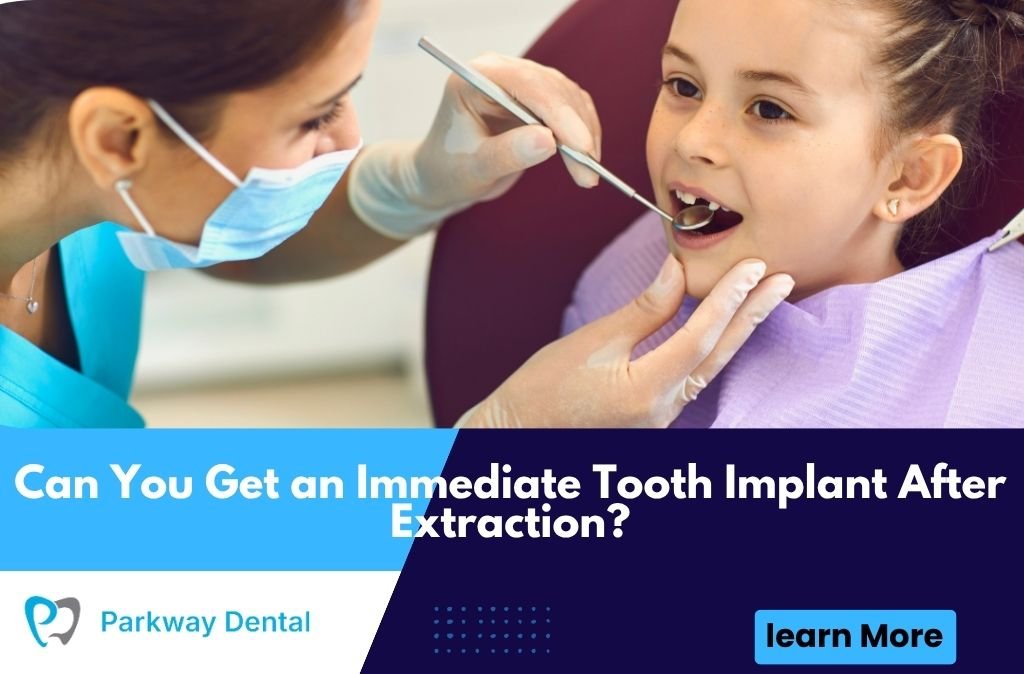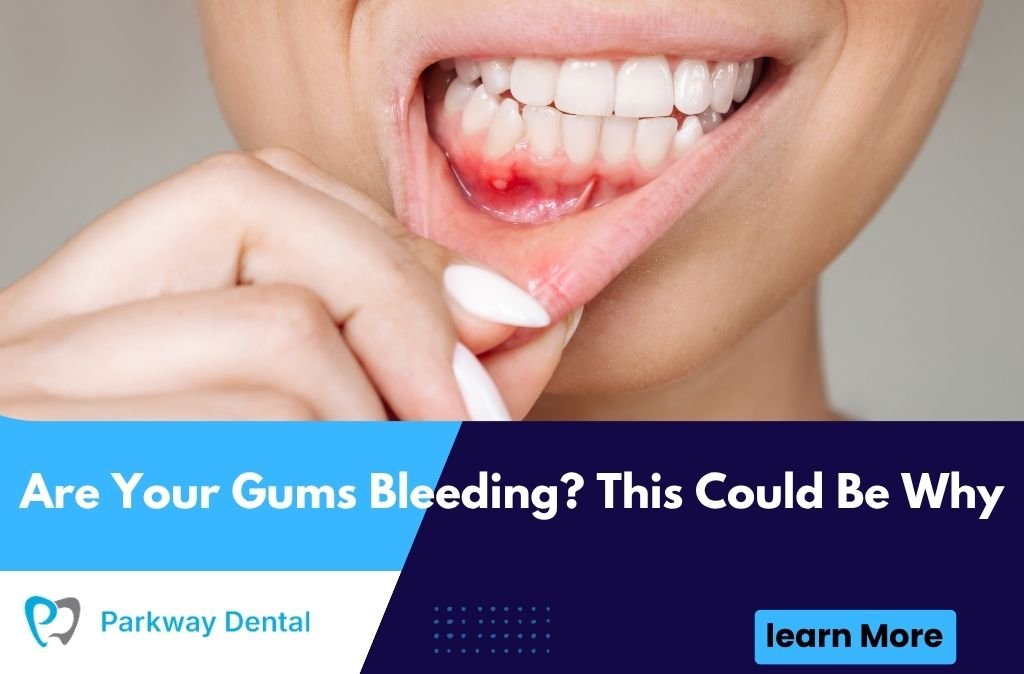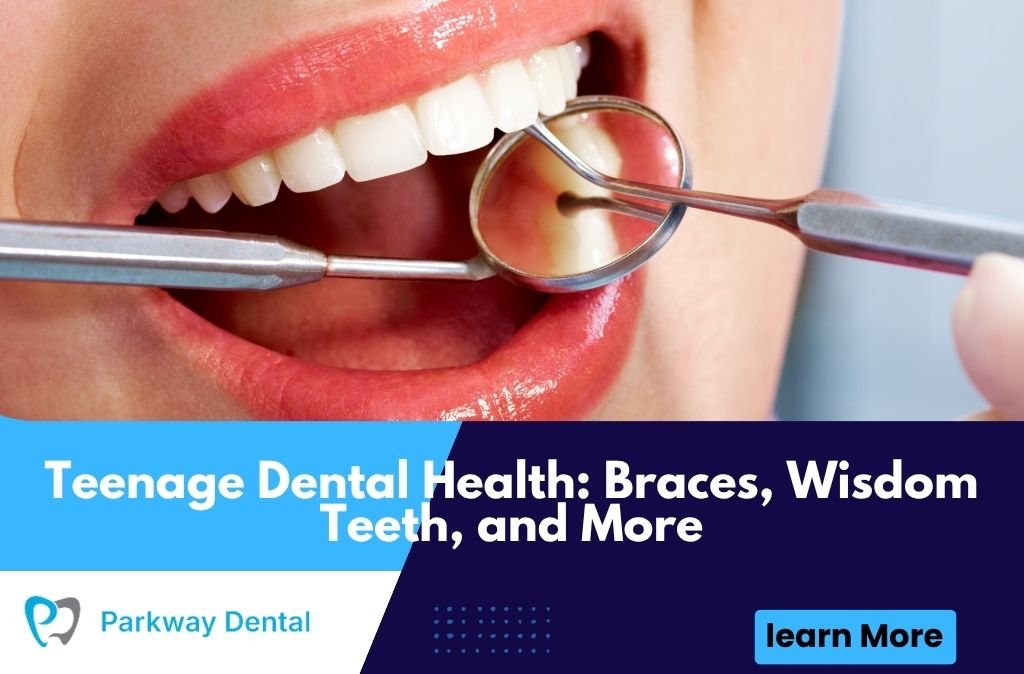If you’ve lost a tooth or are about to have one extracted, you’re probably wondering: Can I get a tooth implant the same day my tooth is removed? The short answer is yes, you can—in some cases. It’s called an immediate dental implant, and it’s becoming a popular solution for many patients.
In this article, we’ll walk you through everything you need to know about immediate implants after tooth extraction, including when they work best, the benefits, the risks, and what the full process looks like.
What Is an Immediate Tooth Implant?
An immediate tooth implant is when a dental implant is placed into the jawbone right after the natural tooth is extracted—all in the same appointment.
Traditional vs. Immediate Implants
Traditionally, patients had to wait 3 to 6 months after a tooth extraction before getting an implant. This delay allows the bone to heal and be ready for the implant.
But with an immediate implant, the post is placed right after the tooth is removed, reducing treatment time, preserving bone structure, and in some cases, even allowing for a temporary crown to be placed the same day.
Benefits of Getting an Immediate Tooth Implant
Immediate implants come with some significant advantages—both in terms of health and convenience.
Shorter Treatment Time
One of the biggest perks is that you save time. Instead of waiting months between extraction and implant placement, you move forward in a single visit.
Bone Preservation
Once a tooth is extracted, the surrounding jawbone begins to shrink. Placing an implant right away helps preserve the bone and maintain the shape of your face and smile.
Better Aesthetics
When you get a same-day dental implant, it often helps to maintain gum contour and your natural appearance, especially for front teeth.
Fewer Surgeries
Getting everything done in one appointment means less surgical intervention, fewer follow-ups, and potentially lower overall costs.
Who Is a Good Candidate for an Immediate Dental Implant?
Not everyone qualifies for a same-day implant. Certain factors affect your eligibility.
Healthy Gums and Jawbone
You must have healthy gums and enough bone density to support the implant right after the tooth is removed.
No Active Infections
There should be no infection or decay in the surrounding bone or gums at the time of extraction.
Non-Smokers Preferred
Smoking can slow down healing and increase implant failure rates. If you smoke, you’ll need to quit or follow strict aftercare.
Good Overall Health
Conditions like uncontrolled diabetes, autoimmune disorders, or ongoing chemo/radiation therapy can delay healing and reduce success rates.
The Immediate Tooth Implant Process
Let’s break down how it works, step by step.
Consultation and Imaging
Your dentist will do a comprehensive exam, take X-rays or a 3D CT scan, and evaluate your oral health and bone structure.
Tooth Extraction
Your damaged or decayed tooth will be carefully removed. The surrounding bone and gum tissue are preserved as much as possible.
Implant Placement
Immediately after extraction, a titanium implant post is inserted into the socket where your tooth was.
Bone Grafting (If Needed)
In some cases, a bone graft is done at the same time to strengthen the jawbone around the implant.
Temporary Crown (Optional)
If your bone is strong and stable, a temporary crown may be placed on the same day. This is called immediate loading.
Healing and Osseointegration
The implant integrates with the bone over 3 to 6 months. Once healed, a permanent crown is attached.
Risks and Considerations of Immediate Implants
Like any procedure, immediate implants carry risks that need to be considered.
Implant Failure
The implant may not integrate with the bone properly if it moves too much or if the surrounding bone is weak.
Gum Recession
If the gum tissue doesn’t heal well, it could lead to aesthetic issues, especially in the front teeth.
Infection
Immediate placement requires sterile conditions. Any infection left untreated can impact healing.
Cost of Immediate Dental Implants
The cost of an immediate implant varies depending on several factors, including:
Factors That Affect the Price
- Location of the clinic
- Dentist’s experience
- Need for bone grafting
- Type of crown used
- Diagnostic tools like 3D scans
In general, a single immediate implant may cost between $3,000 to $6,000, especially if advanced technology or temporary crowns are included.
Healing Timeline After Immediate Tooth Implant
The healing timeline after an immediate tooth implant usually takes a few months. In the first week, swelling and discomfort are normal. Over the next few weeks, gums begin to heal. Full bone integration, known as osseointegration, happens gradually over 3 to 6 months before the final crown is placed.
Week 1 – Recovery from Extraction
Mild swelling and discomfort are common. Follow post-op care instructions closely.
Weeks 2-6 – Soft Tissue Healing
Gums begin to heal around the implant. Avoid chewing on that side.
Months 3-6 – Bone Integration
The implant fuses with your bone in a process called osseointegration. You’ll return for checkups.
After Month 6 – Permanent Crown Placement
Once healing is complete, your custom crown is attached, restoring full function and a natural look.
Alternatives to Immediate Implants
If you’re not eligible for same-day placement, there are other options:
Delayed Implants
The implant is placed months after extraction to allow complete healing.
Mini Dental Implants
Smaller in size, mini implants are quicker to place but may not last as long.
Dental Bridges or Dentures
These are non-surgical options, though they may not offer the same stability or bone preservation.
Choosing the Right Dentist for Immediate Implants
This is a specialized procedure. You’ll want a dentist who has experience with implantology, uses modern tools like 3D scanning, and offers personalized care.
Look for a provider who:
- Has implant success stories
- Offers consultations and imaging
- Uses high-quality materials
- Has a comfortable, hygienic environment
Conclusion
Immediate dental implants after tooth extraction are a convenient, effective, and life-changing solution—but they’re not for everyone. If you’re in good oral health and want to restore your smile quickly, this may be the ideal choice.
Ready to explore if a same-day implant is right for you? Speak with a trusted Dentist in West Roxbury, MA who can guide you through every step and help you regain your confidence, health, and smile.
FAQs
Can everyone get an immediate implant after extraction?
No, you must have healthy gums, no active infections, and sufficient jawbone density to qualify for a same-day implant.
How long does an immediate dental implant last?
With proper care, your implant can last 15 to 25 years or more. Regular checkups and oral hygiene are key.
Is the procedure painful?
Most patients report only mild discomfort, which is easily managed with prescribed pain relief. The procedure itself is done under local anesthesia.
What happens if the implant fails to integrate?
If integration fails, your dentist will remove it, allow the area to heal, and possibly try again later with a new implant or bone graft.
Is a temporary crown always placed the same day?
Not always. Immediate loading depends on bone stability and location of the implant. In many cases, it’s safer to wait for healing.
Will insurance cover the cost of an immediate implant?
Some dental insurance plans may cover part of the cost, especially if tooth loss affects function. Check with your provider for specific details.







